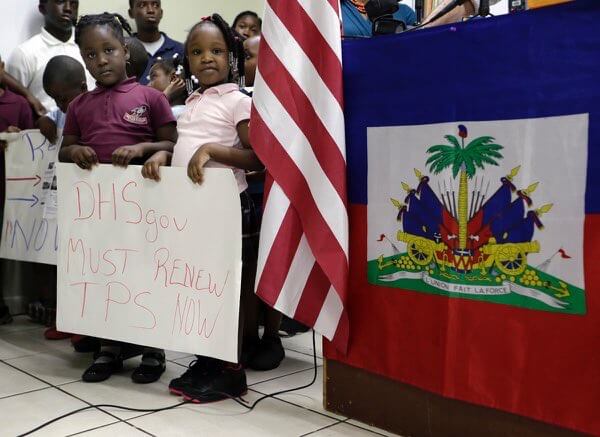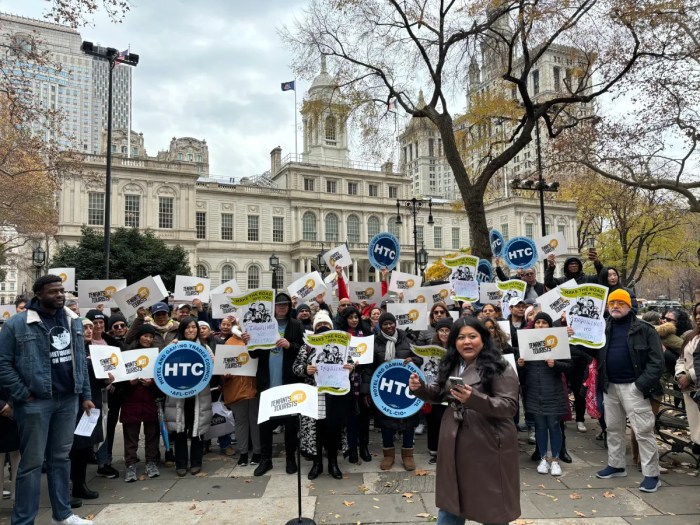By Naeisha Rose
Haitians who came to the United States under a temporary protected status because of natural disasters in their home country will have to prepare to leave the United States in the next two years or face deportation. The Department of Homeland Security announced Monday that Haitians would have 18 months to make arrangements before TPS expires for them on July 22, 2019.
Former New York City Immigrant Affairs Commissioner Nisha Agarwal said there are 22,000 Haitians in New York who were allowed a short-term stay in the country and the ones in Queens are concentrated in Hollis, Jamaica, Cambria Heights, Springfield Gardens and St. Albans, according to Community Boards 12 and 13.
Had TPS not been extended for the nearly 60,000 Haitians living here under that designation, many would have had to prepare to leave the country by Jan. 22, 2018, according to Homeland Security.
“Ending TPS is senseless and cruel,” said state Sen. Leroy Comrie (D-St. Albans). “Many of these individuals have been living in the U.S. for more than 10 years. To send them back to a countries are recovering from natural disasters and weak economies would devastate countless families in the U.S. and abroad. The president’s decision benefits no one. It is mean-spirited, harmful political posturing.”
Nicaragua lost its TPS protection last month and Homeland Security was expected to announce a decision on the program in El Salvador soon. Sudan, Syria and Yemen are among the other countries covered by TPS.
Haitians were granted TPS in the United States after a devastating 7.0 magnitude earthquake ravaged the western portion of the island on Jan. 12, 2010.
DHS’s argument for sending Haitians back to the island is based on recommendations from the State Department that conditions have improved enough to allow the TPS designees to return home.
Humanitarians have many concerns about sending anyone back to the Caribbean country, however, which is the poorest nation in the Americas, according to the World Bank Group. As of 2014, Haiti has a gross domestic product per capita of $846.
Over the course of seven years after the quake, the island has been slow to recover, especially after taking another hit from Hurricane Matthew in 2016 in the southern portion of the country, according to reliefweb.int, which follows humanitarian efforts on a global scale.
A cholera outbreak produced 21,000 cases after the quake, but 7,626 still are afflicted by the disease, according to UNICEF. There are 3.2 million people on the island in need of humanitarian assistance, 12,000 of whom are children who are considered vulnerable and 1.4 million who need help with water, sanitation and hygiene.
“This is another dark day under the Trump administration. The White House’s decision to end TPS for 50,000 Haitians on the eve of Thanksgiving is a cold affront to their families, including the 8,000 children in NYC with a parent who is protected under this policy,” according to the Acting Immigrant Affairs Commissioner Bitta Mostofi. “They have taken root in our communities, participated in civic life and contributed to our economies.”
Haitians contributed $280 million in GDP and $42 million to Medicare and Social Security, according to Agarwal.
“New York City will continue to fight this decision and push for a legislative solution in Congress. Any New Yorker with immigration legal questions can call 311 and ask for ActionNYC to be connected to free, confidential help,” Mostofi said.
Allies of Haiti like Haitian Americans United for Progress, the New York Immigration Coalition, Make the Roady NY, unions 32BJ SEIU and SEIU 1199, and some electeds believe sending nearly 60,000 people back to the island, which is still in a precarious state, would set off another disaster, according to Carolina Gonzalez, a spokeswoman for the groups who held a rally Tuesday in Manhattan after the decision was made.
Reach reporter Naeisha Rose by e-mail at nrose





































